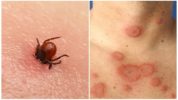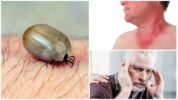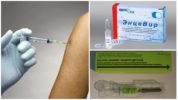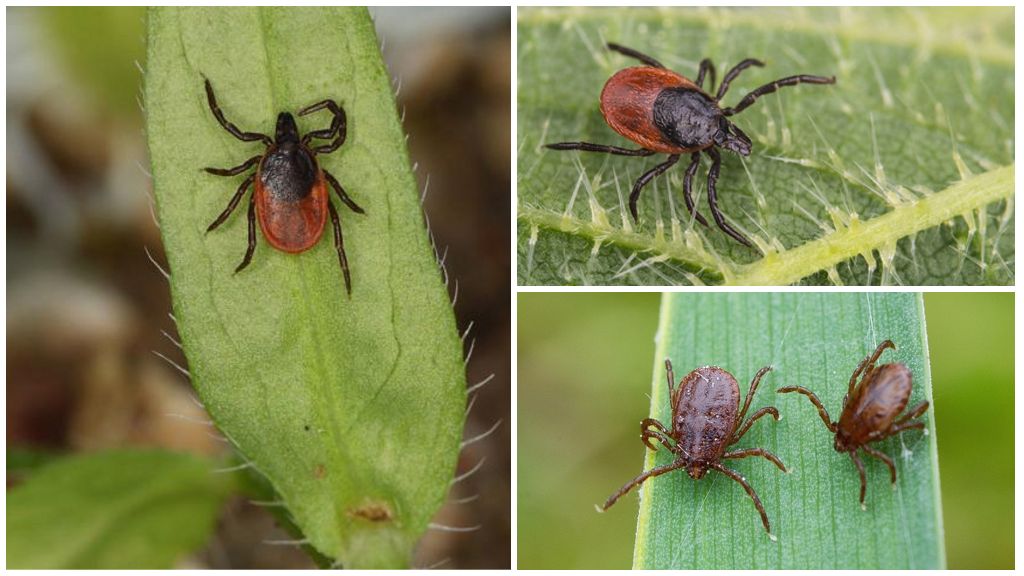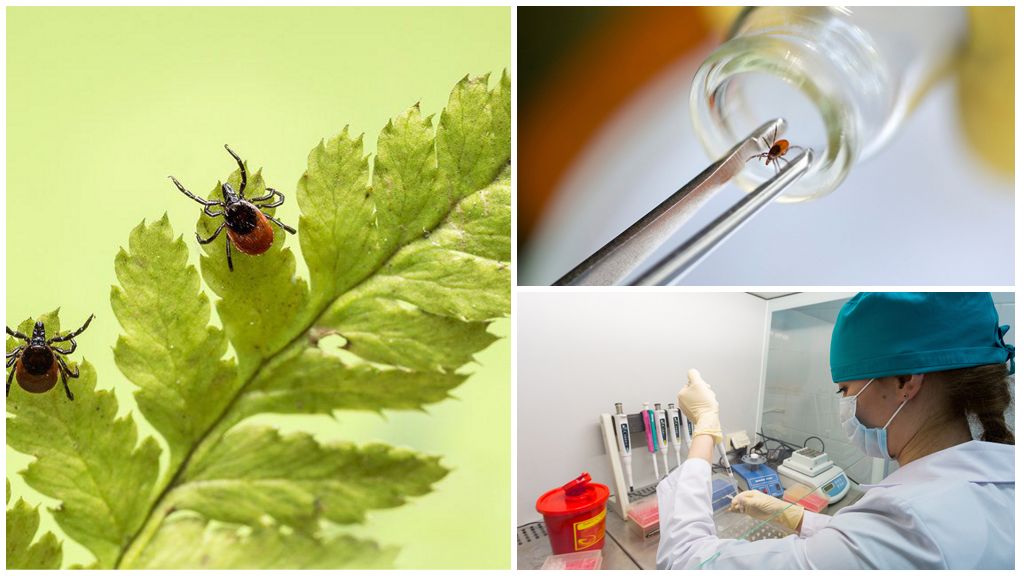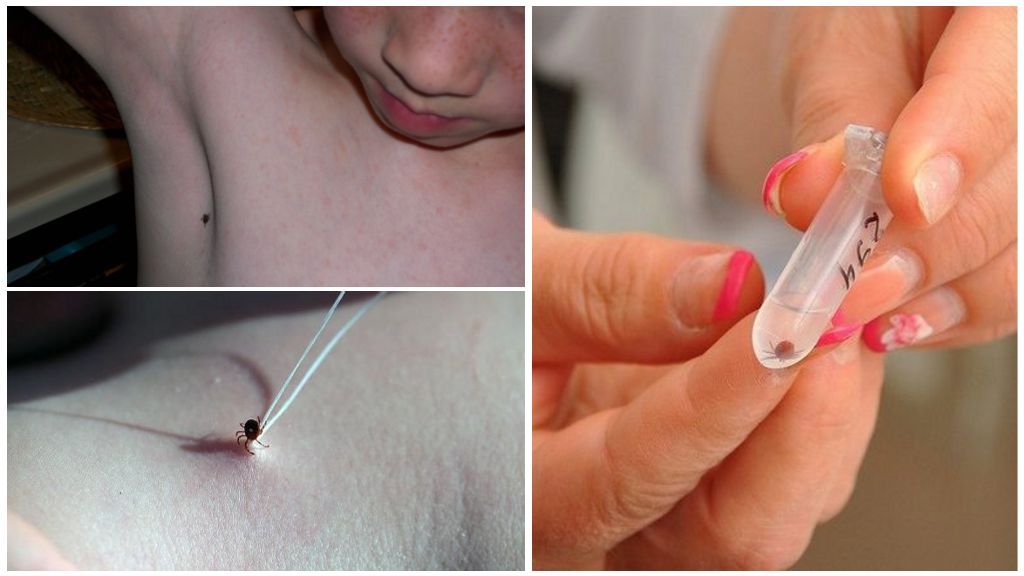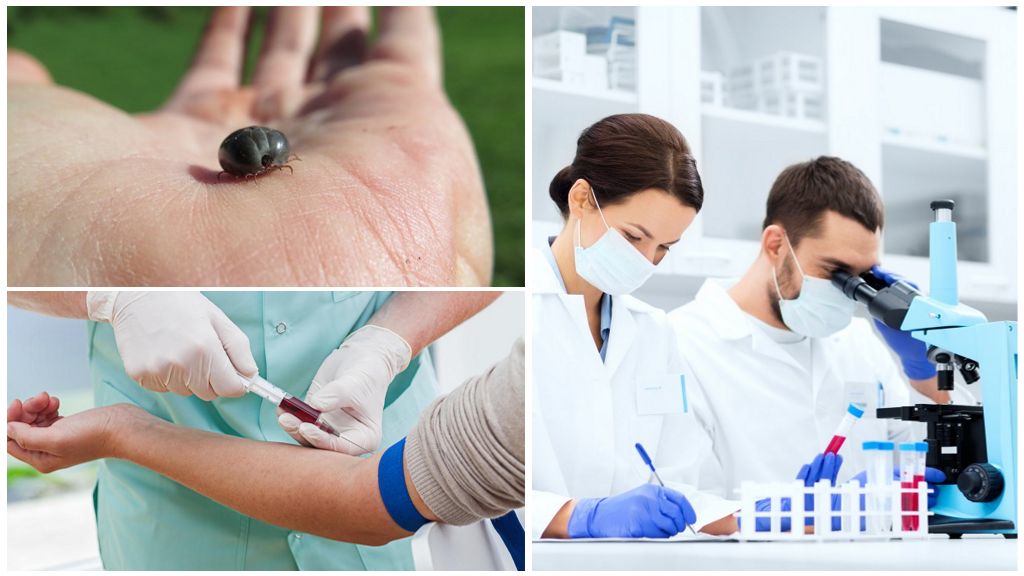- Borreliosis
- Crimean fever
- Tick analysis in the laboratory
- Encephalitis vaccine
With the onset of spring, bloodsucking parasites are activated in parks and forests. According to Rospotrebnadzor, in 2018 ticks in the Volgograd region managed to bite more than 3.4 thousand people, of which 1230 are children under 14 years old. What is their dangerhow to protect yourself from these pests, what to do when a tick is found on your body - The information will interest many residents of the region.
Tick Hazard Statistics
In the Volgograd region, according to scientists, cases of infection are most often recorded ticks people with the following diseases:
- Crimean hemorrhagic fever (CHF);
- tick-borne borreliosis or Lyme disease;
- tularemia.
Volgograd sanitary services annually carry out spring treatment of epidemic territories from pests. In 2018, it was processed acaricides more than 2.6 thousand hectares, including: outdoor recreation areas, summer camps for children, country cafes and restaurants, pastures and cemeteries. Some areas of cattle and small cattle walking were re-processed.
Rospotrebnadzor of the Volgograd region notifies residents about what actions to take when a tick is found on itself:
- seek medical attention immediately;
- after the parasite has been removed by doctors, it is necessary to monitor its condition for 2 weeks: measure the temperature, etc. - consult a doctor immediately with the slightest deterioration;
- at self removal of the parasite skin recommended after removal take the tick for analysis to the laboratoryto check for infection.
Important!
When self-extracting a tick attached to the skin, experts categorically forbid it to be done with bare hands, but only in rubber or sterile gloves due to its possible crushing. This is what often causes infection with pathogens of CHF.
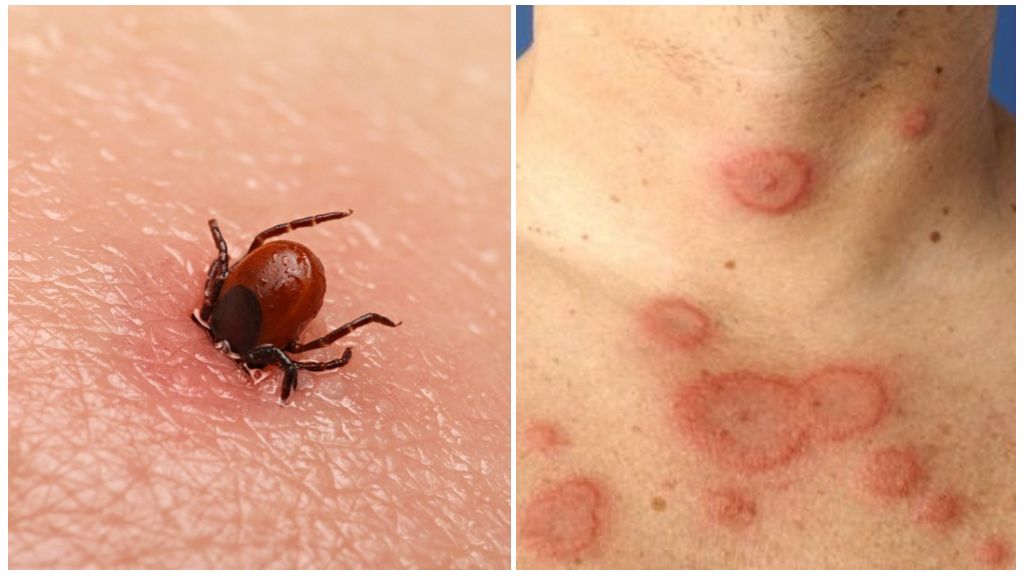
According to Rospotrebnadzor, the first cases tick bites occur already in early April. So, at the beginning of July 2018, the number of people affected by tick bites in the Volgograd region amounted to 2600 people, of which 930 are children. Of these, CHF was diagnosed in 8 people, of which 3 live in Kotelnikovsky and Surovikinsky districts, and 1 in Svetloyarsky and Oktyabrsky. Infection occurred due to the fact that they removed ticks with their bare hands. In 1 person, tick-borne borreliosis was detected.
The peak of tick activity in the Volgograd region occurs in May, and they also go hunting in September and October. Therefore, in the city from May 1 to May 15, the hotline telephone operates:
- on weekdays - 23-85-73, 39-61-42;
- weekends and holidays - 24-36-30.
Crimean fever: symptoms and protection
CHF refers to severe infectious diseases, which transmitted by ticks and other blood-sucking parasites. The disease got its name after it was first identified in 1944 in the Crimea. The carriers of the disease are mainly ixodic and other types of ticks.
When a “bloodsucker” bites a virus, it is transmitted through the skin, and infection can also occur by close contact with the blood of an infected person or animal, when the tick is crushed by hand when removed from the skin. CHF is most often manifested in the agricultural season; occasionally, there are cases of infection in a hospital setting.
Symptoms of CHF:
- the incubation period is 2-14 days;
- the bitten place begins to “burn”, the body temperature rises to + 38 ... + 39 ° C, chills are present;
- in a wave of 2 calls, a headache appears, as well as muscle and joint in the chest, neck, lower back, limbs;
- unpleasant pain in the abdomen, vomiting, nausea;
- mucous membranes (larynx and eyes) and facial skin turn red, hyperemia is observed, which can spread to the whole body.
Important!
If treatment is not started on time, then the disease enters a difficult stage: changes in the central nervous system reactions (lethargy, drowsiness, and loss of consciousness), as well as internal hemorrhages, appear.
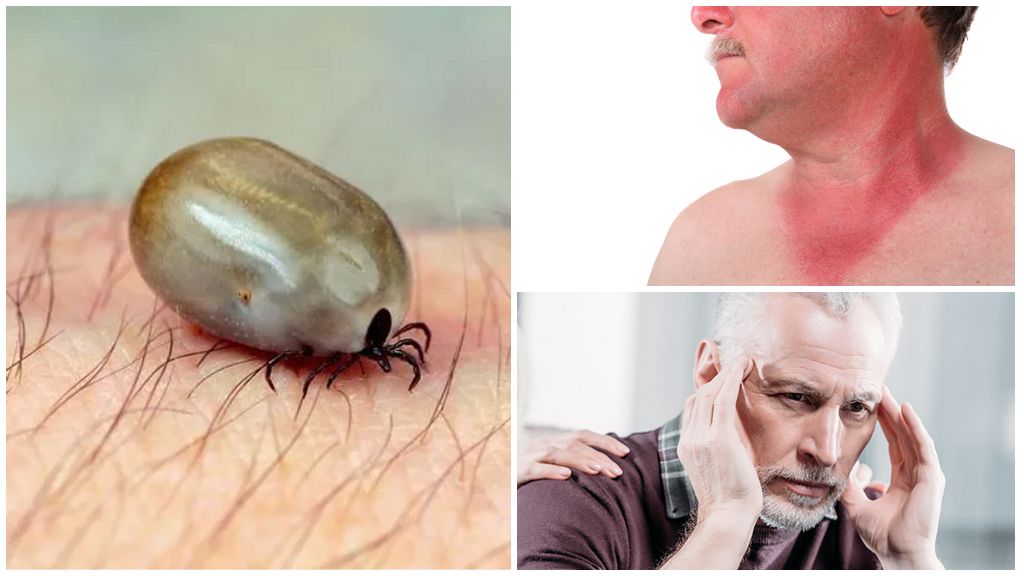
Treatment and prognosis
After diagnosing Crimean fever, the patient needs hospitalization, diet and bed rest. In complex therapy, the doctor prescribes the following drugs: Alpha-interferon, Ribavin (antiviral), the introduction of immune serum.
With proper treatment, the prognosis of the course of the disease is favorable. Within 1-2 years, the patient retains immunity to CHF.
Crimean fever prevention is as follows:
- avoid a long trip to nature in the months when ticks are activatedIt’s better to postpone the event to hotter months;
- wearing closed clothing with possible contact with ticks (in the woods, on a picnic, in a garden plot, etc.), it is recommended to wear a scarf, trousers and shirts with cuffs on the neck and head, or tuck in boots;
- the use of protective nets;
- application tick remedies;
- daily inspection of the body for arachnids;
- preventive vaccination against encephalitis, which is also transmitted by ticks.
The phone number for the Volgograd Rescue Service is 089.
Emergency telephone number 112.
Laboratories and hospitals where ticks can be attributed
After self-extraction of the tick that has sucked to the body, it is recommended to put it in a glass container with a sealed lid, take it and take the tick for analysis in Volgograd to make sure that it has not been infected.

On a note!
The tick must be delivered in live form, they are not accepted for analysis. For better safety, it should be placed on a wet cotton pad in a glass jar or plastic container. It can be stored for up to 3 days in a refrigerator at a temperature of no higher than + 4 ° C.
Points and laboratories where it is recommended to apply if a tick is bitten in the Volgograd region:
- laboratory of dangerous focal infections FBUZ "Center for Hygiene and Epidemiology in the Volgograd Region" - located in Volgograd on the street. Angarsk, 13 B, tel. 36-25-71;
- State Institution “Volgograd Regional Clinical Hospital No. 1”: Volgograd, ul. Angarsk. 13, tel. 8 (8442) 37-82-89, 37-03-47, 36-36-23
- Federal State Health Institution “Center for Hygiene and Epidemiology in the Volgograd Region”, tel. 8 (8442) 37-26-74, 36-19-66;
- Laboratory FKUZ Volgograd Scientific Research Infirmary Institute of Rospotrebnadzor - Volgograd, ul. Golubinskaya, 7, tel. 37-37-74.
Encephalitis Vaccination
To protect themselves from a serious infectious disease that is transmitted through the bites of bloodsucking parasites, doctors recommend doing it on time tick-borne encephalitis vaccine. In the Volgograd region annually it is made by 85-100 people who travel for visits endemic for viral encephalitis territories (Siberia, the Urals, the middle zone of Russia). In the city and the region, cases of this disease in recent years have not been recorded, because they are not found here taiga ticks.
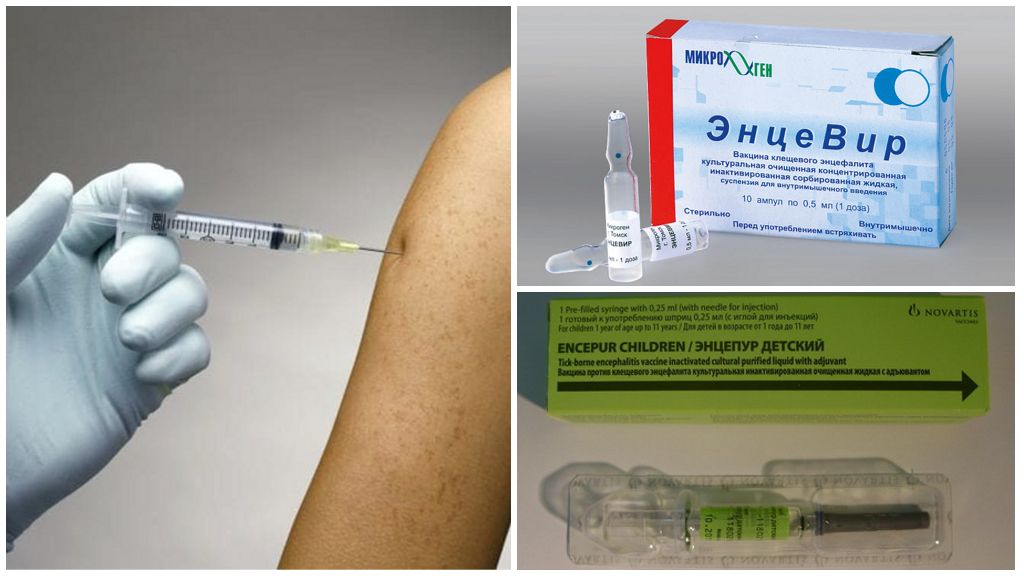
If a person has never been vaccinated, then the vaccination is done according to the traditional scheme:
- first injection of serum;
- after 1-3 months - repeated.
There is also an accelerated scheme according to which vaccinations are given at intervals of 2 weeks. To make sure that the body has successfully developed immunity, experts recommend passing encephalitis antibody test in 10-14 days.
It is allowed to go to nature or in the place of active recreation 2-3 weeks after the second vaccination.
Where do vaccinations in the Volgograd region:
- a vaccine of Russian production is available in all clinics and hospitals of the city;
- adult patients are vaccinated for money, pensioners and children after the age of 15 months. it is done for free (with a vaccine).
Regions of the Volgograd region where ticks are found
According to experts, blood-sucking parasites are most often found in the forest, along paths and on low shrubs. The epidemic situation in Volgograd and the region according to statistics in recent years has been recognized as improving. In 2018, only 1 case of CHF and 1 case of borreliosis were registered.
In order to protect the population from "bloodsuckers", experts recommend processing of garden and suburban areas acaricidal drugs. The destruction of ticks firms are engaged (the price depends on the area - about 300 rubles per one hundred square meters):
- "Comfort for you" tel. +7 (904) 426-40-70),
- "Eco-house" tel. +7 (917) 848-78-90,
- “Des comfort” +8 (8442) 516-733 and others.
The experts associate the improvement of the situation with the timely processing of the territories of the Volgograd region and active work among the population to explain preventive measures and protection against tick attacks. Next year, sanitary services plan to carry out similar activities that will reduce the number of ticks in Volgograd in 2019.
